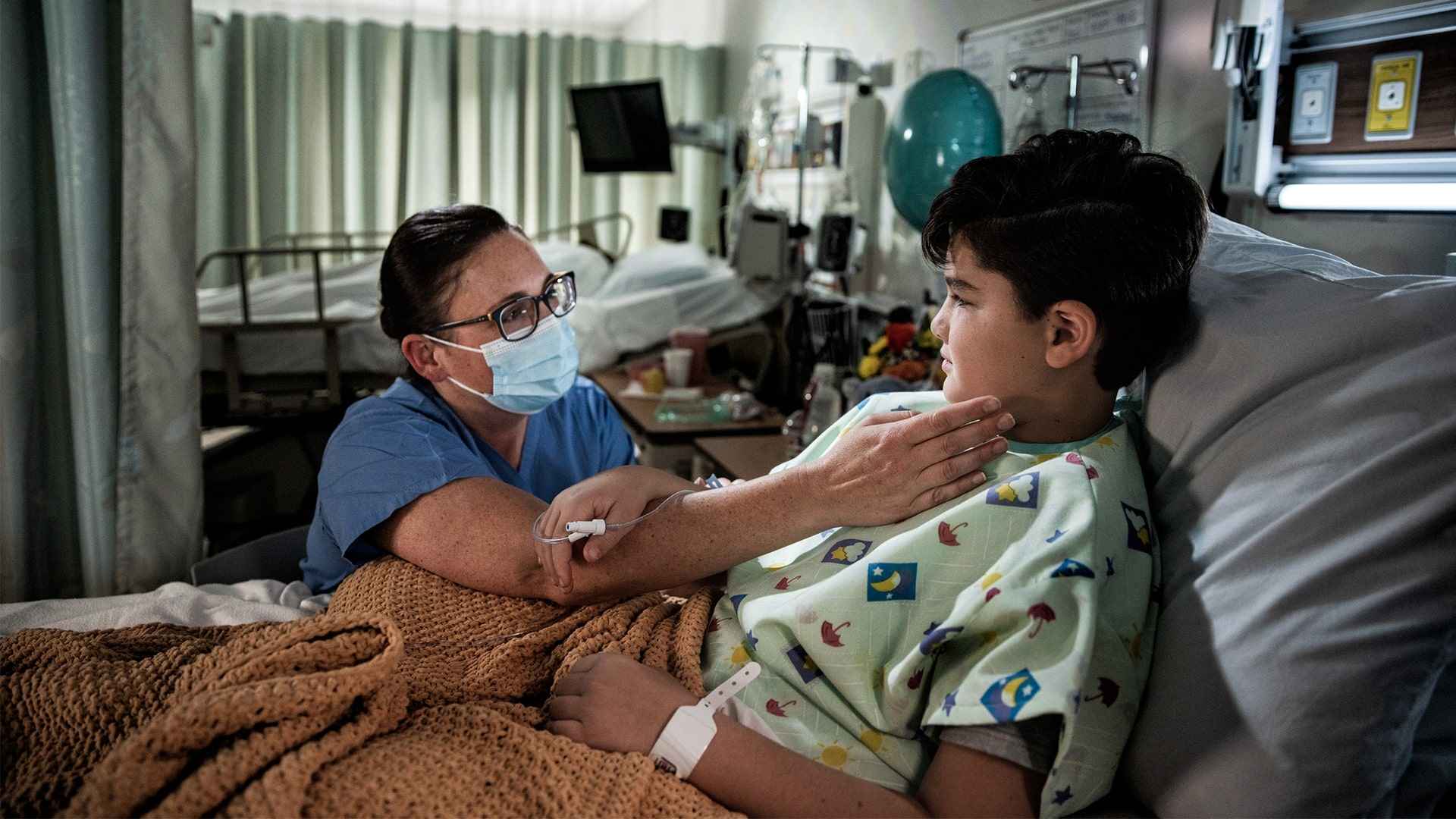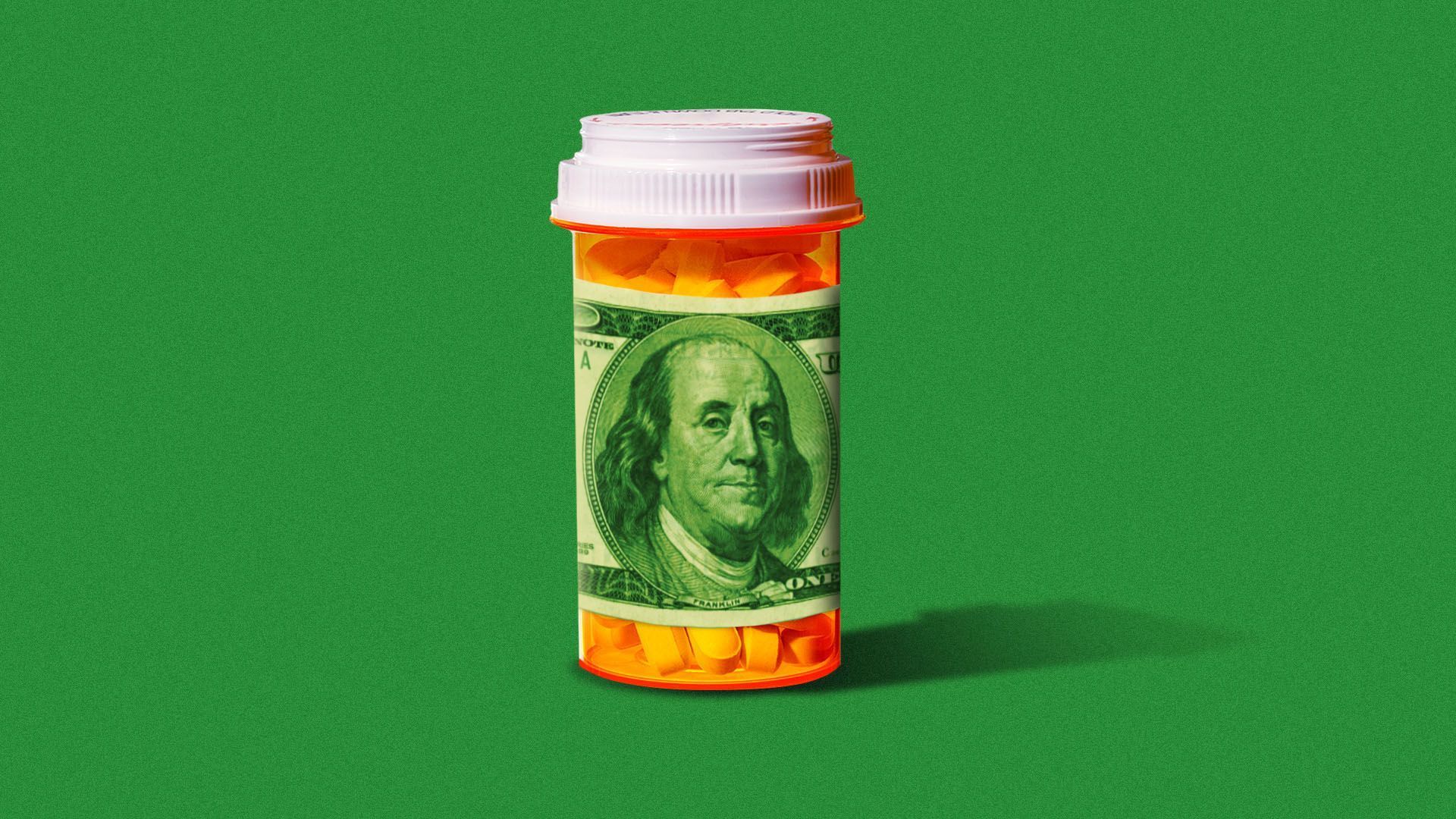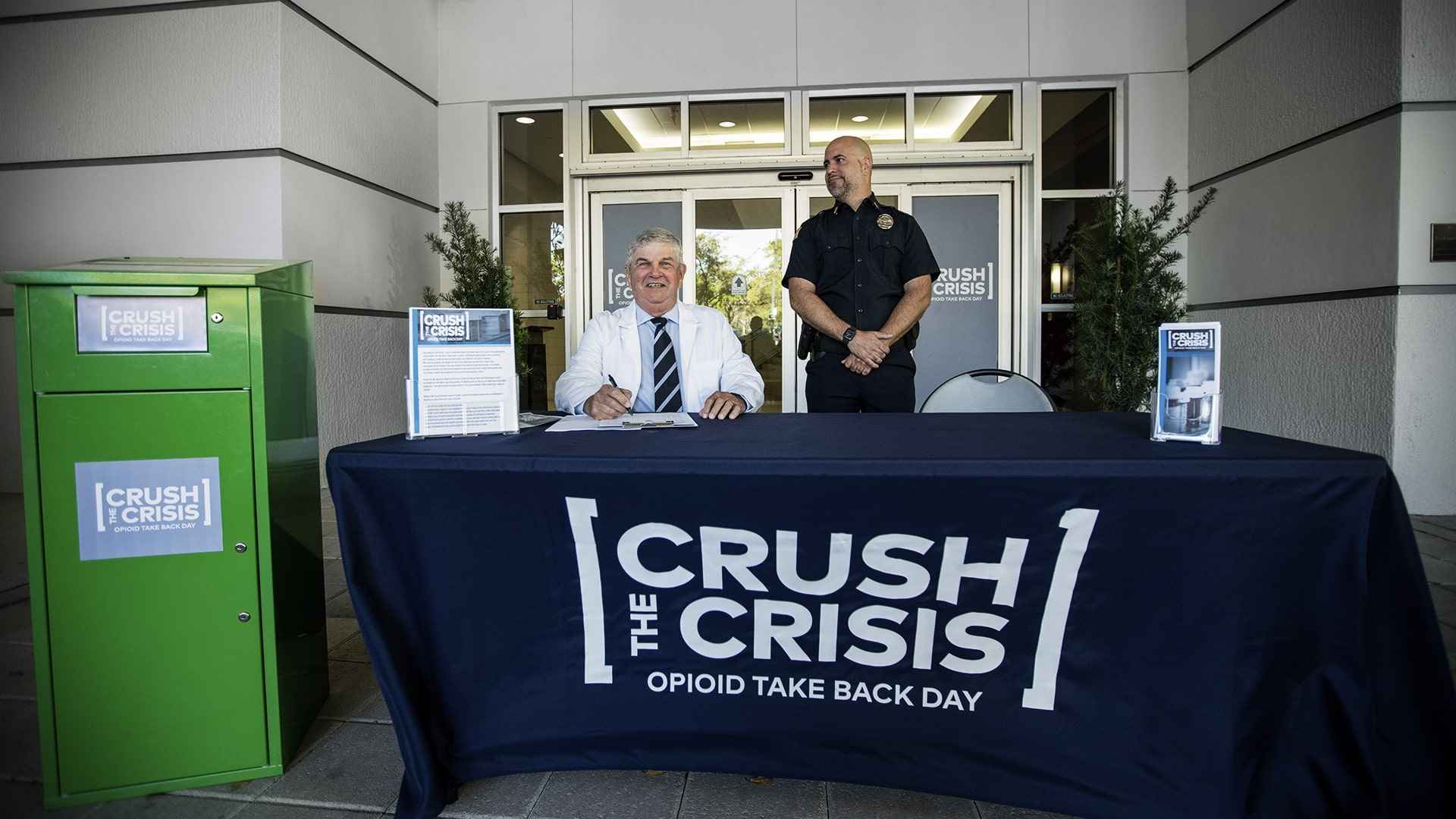| |
| |
| |
| Presented By HCA Healthcare |
| |
| Axios Vitals |
| By Tina Reed · Mar 27, 2023 |
| Good morning, Vitals readers. Today's newsletter is 1,046 words or a 4-minute read. 📆 Axios' second annual What's Next Summit is this Wednesday, March 29, in Washington, D.C.! - Among the speakers: White House Office of Science and Technology Policy director Arati Prabhakar, CVS Health CEO Karen Lynch and more on the issues and innovations shaping our future. Register to livestream the event here.
|
| |
| |
| 1 big thing: Social media companies under fire |
 |
|
| Illustration: Sarah Grillo/Axios |
| |
| Social media companies are increasingly being blamed for historically high rates of depression, suicidality and other mental health issues in youths. And now, states and local governments are increasingly pursuing legislation and legal action. Driving the news: Utah just passed a law limiting social media for minors and school districts in Seattle and San Mateo County, California, are suing leading platforms, charging they're delivering harmful content to kids. "Multiple juries are in. They're all reaching the same conclusion," Jonathan Haidt, a social psychologist at New York University Stern School of Business, told the Financial Times. "When social media or high-speed internet came in, [studies] all find the same story which is mental health plummets, especially for girls." The big picture: There are nearly 150 product liability lawsuits filed in the U.S. against the social media platforms Facebook, Instagram, TikTok, Snapchat and YouTube, per the Financial Times. Zoom in: A landmark ruling in October, a British authority found Meta-owned Instagram culpable for the suicide of a 14-year-old girl. Yes, but: Civil liberties and tech advocates have alarms over privacy concerns, both The Guardian and Vox reported. - And some research has found that some use of social media benefits teens' social connections, NPR reports.
Read the rest. If you or someone you know needs support now, call or text 988 or chat with someone at 988lifeline.org. En Español. |
    |
| |
| |
| 2. What labor shortage? |
 |
|
| Illustration: Brendan Lynch/Axios |
| |
| The COVID-driven labor shortage that's plagued health systems appears to be done, with new hiring reflecting a shift to more outpatient settings, according to an Altarum analysis, Axios' Adriel Bettelheim writes. Why it matters: Burnout and attrition from the pandemic created significant shortages of doctors, nurses and other health workers, hindering the return to normal and driving up medical costs by forcing health systems to rely on contract labor. - While the market has rebounded, there still are significant gaps in nursing and residential care.
What they found: Health care employment is roughly where it was in February 2020 before the pandemic, with jobs added last month consistent with a 12-month average of 49,100. - Hospital employment is close to the level of three years ago and ambulatory care employment is nearly 5.6% higher.
- February health care job growth was led by hospitals, which added 19,400 jobs. Nursing and residential care facilities added 13,700 jobs and ambulatory settings added 11,100 jobs.
Yes, but: Altarum found nursing and residential care employment remains more than 270,000 jobs below the level of three years ago. - Wage growth in health care also has been declining since mid-2022 and has now fallen slightly below total private sector wage growth.
|
    |
| |
| |
| 3. Dem lieutenant governors align on abortion rights |
 |
|
| Illustration: Lindsey Bailey/Axios |
| |
| Almost two dozen Democratic lieutenant governors are forming a coalition built around protecting abortion access in their states that will likely involve crafting model executive orders and legislation, Axios' Victoria Knight and Oriana González write. Driving the news: The Reproductive Freedom Coalition — led by Connecticut Lt. Gov. Susan Bysiewicz — comes as a federal judge in Texas weighs a case that could end nationwide access to one of the most commonly used abortion pills in the U.S. - The group announced its formation on Sunday night.
- "This is an important moment. Overturning Roe v. Wade was only the beginning," Bysiewicz said in a statement. "[T]he need to stand firm with our patients and providers is clear."
- Among the Democratic lieutenant governors who have not joined are Kansas' David Toland and Kentucky's Jacqueline Coleman.
- Members include lieutenant governors from Pennsylvania and Wisconsin, which have a Democratic executive branch and Republican-controlled legislatures. Vermont's lieutenant governor is also part of the new coalition, though the state has a Republican governor.
|
    |
| |
| |
| A message from HCA Healthcare |
| Transforming healthcare through data science |
| |
 |
| |
| HCA Healthcare uses insights from more than 37 million annual patient encounters to improve patient care. An example: Their Enhanced Surgical Recovery program, a research-based multidisciplinary approach, uses interventions to improve surgical results for patients. Learn more. |
| |
| |
| 4. Food insecurity and cognitive decline |
 |
|
| Illustration: Sarah Grillo/Axios |
| |
| Food insecurity late in life is associated with unusually rapid declines in brain functions that are necessary for everyday activities, according to a new study, Axios' Ayurella Horn-Muller writes. The big picture: Older adults facing food insecurity, which is rising nationwide, are at higher risk of faster decline that can be an early mark of cognitive impairment. Details: The study published Friday in JAMA Network Open found that prolonged experiences with food insecurity were associated with a faster decline in executive function among the sample of older adults. - Plus, severe cases of food insecurity may induce even higher levels of stress and adverse health impacts, making older adults more susceptible to cognitive decline at an accelerated pace.
Read the rest. |
    |
| |
| |
| 5. Financial incentives and addiction treatment |
 |
|
| Illustration: Sarah Grillo/Axios |
| |
| A Pennsylvania program that incorporates addiction treatment into emergency care for Medicaid patients who overdose could help limit patient deaths after discharge, according to a study published in JAMA Health Forum, Axios' Sabrina Moreno writes. The big picture: Emergency departments are increasingly encountering nonfatal opioid overdoses as the crisis worsens, but it's still rare for EDs to offer treatment like buprenorphine despite its ability to reduce overdose deaths and stabilize withdrawal. What they found: The financial incentives, which could add up to nearly $200,000, were associated with a 50% rise in prescription fills for buprenorphine within 30 days of being discharged. - Researchers also estimated that roughly 75% of the state's hospitals opted into at least one of the options to increase patient access to medication-assisted treatment.
The bottom line: Using financial incentives for providers to treat Medicaid patients with opioid use disorder could encourage more widespread adoption of medication-assisted treatment in emergency departments and lower overdose deaths. |
    |
| |
| |
| 6. While you were weekending |
 |
|
| Illustration: Aïda Amer/Axios |
| |
| 👀 How Cigna saves millions of dollars by having its doctors reject claims without reading them. (ProPublica) 🚘 You may need that procedure. But do you really need an escort? (New York Times) 🍼 "Lessons have not been learned": FDA knew of positive test months before latest infant formula recall. (Politico) |
    |
| |
| |
| A message from HCA Healthcare |
| Helping to combat the opioid crisis |
| |
 |
| |
| HCA Healthcare's Crush the Crisis events provide an opportunity for the community to safely and anonymously dispose of unused or expired medications. The impact: Over 100 HCA Healthcare facilities collected an estimated 13.4 million doses in 2022. See how we show up for our communities. |
| |
| Thanks for reading, and thanks to senior health care editor Adriel Bettelheim and senior copy editor Bryan McBournie for the edits. |
 | | Dive deeper into the future of health care | | |
No comments